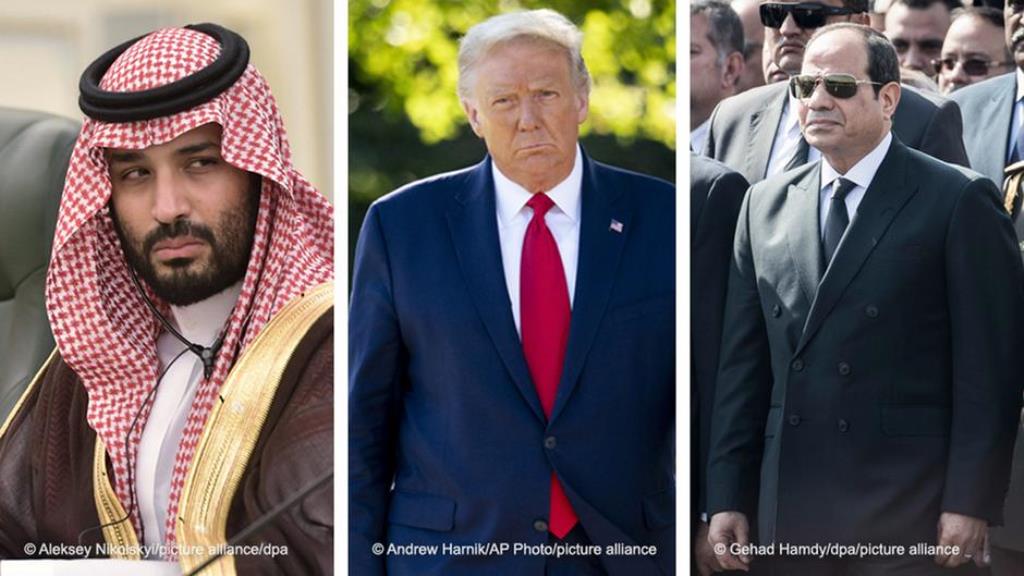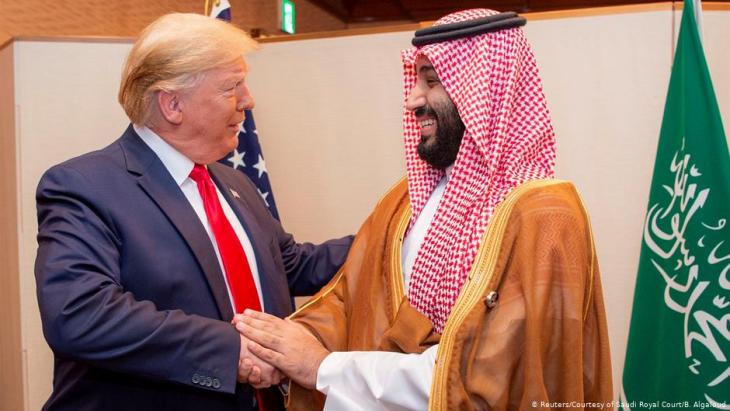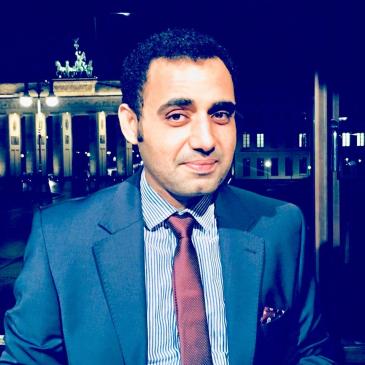Arab dictators hold their breath at Trump's possible exit

Under Donald Trump, the United States of America has entered a spiral of political, moral and professional decline. The man deals with politics as a real estate broker, rather than as a politician who knows the strength of his country and its status in the world, or who understands the principles of democracy, freedom and human rights. Perhaps it is Trump’s background and the way he came to power – a political outsider, affiliated with neither the Democrat nor Republican parties – that best explains the crisis of leadership currently being played out in the United States.
Since Donald Trump came to power in 2016, the face of the world has changed dramatically. The far right has become stronger, boosted by Trump's racist rhetoric, and the Middle East is a much darker place than it was before. Trump has acted outside the political and diplomatic conventions of recent decades. He has aggravated the schism in the Gulf by supporting the blockade on Qatar. He gave despotic regimes the green light to initiate wars and destruction, and to kill and imprison their opposition, openly providing cover for their crimes.
The case of the Saudi journalist Jamal Khashoggi, murdered in his country's consulate in Istanbul, and the war in Yemen are blatant examples of Trump affording support to oppressive regimes in the Arab world to commit whatever acts of repression, killing and wholesale human rights violations they liked, without fear of pressure being brought to bear upon them by the United States or its allies.
You may also like: The killing of Khashoggi – Letting Mohammed bin Salman off the hook
Demonstrating a ruthless grip on security, these regimes have used the fig-leaf provided by Trump to consolidate their control, blowing apart the rule of law. They have also changed their constitutions in order to stay in power for longer. This is exactly what Egyptian President Abdul Fattah al-Sisi has done – legally he can now remain in power until 2030.

Fearing a return of human rights and democracy
With the American elections on 3 November, the authoritarian regimes are becoming anxious. Opinion polls confirm that the Democrat candidate, Joe Biden, is far ahead of the current president, and this means that Biden may well be the next U.S. president. Should this happen, the goalposts in the Middle East are very likely to shift.
A Biden victory and the prospect of human rights once again taking centre-stage for an American president represent a real threat to the Middle East's autocratic regimes. In Egypt, for example, President Sisi has taken a stance against human rights since coming to power in 2014; he has arrested tens of thousands of people, stifled public debate and taken control of the media. He has also extended his control over the executive and the legislature by means of the constitutional amendments that came into force last year.
Sisi’s repressive tactics follow from his personal conviction that the margin of freedom given to the opposition prior to 2011, including allowing human rights organisations to operate, was what led to the revolution and the ousting of former president Hosni Mubarak in February 2011. This is Sisi’s obsession and the primary motive behind his actions. In this, he has been helped by Trump in exchange for concessions or within the framework of political deals, most notably the so-called 'deal of the century'.Joe Biden’s expected victory and his arrival in the White House would undoubtedly have an impact upon the policies of the Egyptian president. Sisi would be subject to international pressure from the U.S. and its allies. Moreover, there are institutions within the Egyptian state that are monitoring the situation closely, which might intervene at any moment to overthrow the president. Take the military establishment, for example, which is now the only agency capable of bringing about change in Egypt.
From this perspective, the rumours circulating about Sisi donating money to Trump's campaign in the hope of getting him re-elected and keeping him in power seem all the more credible. After all, this would secure Sisi's own position, giving him the chance to make yet more concessions at the expense of Egypt’s national security and its regional standing, both of which have declined during his rule.
As President, I will see to it that America once again stands for human rights. That doesn't mean rights only for some, but rights for all — each and every American, and every person, everywhere. No exceptions. https://t.co/fxULEFsp3O
— Joe Biden (@JoeBiden) July 18, 2020
Saudi Arabia prepares for post-Trump era
In Saudi Arabia, it’s a similar story with Crown Prince Muhammad bin Salman, who became heir apparent under Trump’s auspices and with his approval.
With Trump on side, bin Salman ousted Muhammad bin Nayef as heir apparent and installed himself as crown prince against the will of the Allegiance Council, which is responsible for the nomination process. Later, bin Salman detained his cousin, the former crown prince, and placed him under house arrest. He did the same with his uncle Prince Ahmed bin Abdulaziz, who was considered his main rival for the position of crown prince and beyond that, for the throne itself.
The matter did not end there. Bin Salman issued orders to murder the well-known Saudi journalist Jamal Khashoggi at his country's consulate in Istanbul, in a heinous crime which shook the world. Trump’s support allowed bin Salman to get away with this awful crime without any international repercussions.
Blow to Abu Dhabi's Muhammad bin Zayed

As for the UAE and its Crown Prince, Trump's defeat, if that is what transpires, would be a catastrophe for the Emirati lobby, which was formed in Washington under the UAE Ambassador Yusef al-Otaiba’s direction. It has powerful relationships in Washington, but the news has already done the rounds about the UAE's interference in the last U.S. presidential elections. Any possible investigation into this could in turn lead to an indictment being brought against bin Zayed.
Trump's defeat could indeed diminish the influence of bin Zayed, the UAE’s strongman and de facto ruler, who aspires to be the regional headman, at the expense of an ailing Egypt. Indeed, a Biden victory would be a painful blow generally to the forces of counter-revolution in the region, likely putting the war in Yemen, which has been going on for years, to an end.
Since the start of the uprisings in the Middle East – nowadays known as the Arab Spring – the region has seen changes in the balance of power, including a withdrawal by the U.S. and a return of Russian influence, courtesy of Syria.
The American withdrawal under Trump is of greater significance than the rise of other regional powers such as Turkey and Iran. On another front, there is the monstrous nature of some Arab regimes.
For these reasons, Joe Biden's victory would mean a new beginning for the region. And, without doubt, it would prompt changes in U.S. policy.
Taqadum al-Khatib
© Qantara.de 2020
Translated from the Arabic by Chris Somes-Charlton
Taqadum Al-Khatib is an Egyptian researcher who obtained his doctorate from The Free University in Berlin & Princeton University. He is a political analyst, a writer for a number of Arab and foreign newspapers, and a former political liaison officer at the National Association for Change in Egypt.
